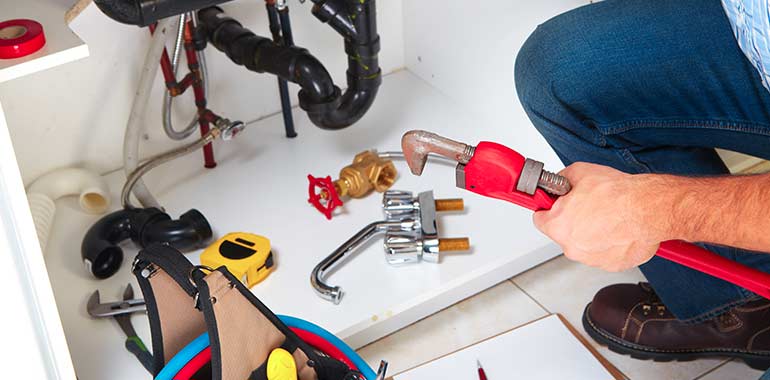Pulse of Information
Stay updated with the latest news and insights.
When Your Pipes Squeak: The Uninvited Soundtrack of Plumbing Repair
Discover the secrets behind squeaky pipes! Uncover why they happen and how to silence your plumbing’s uninvited soundtrack today!
Understanding the Causes of Squeaky Pipes: A Homeowner's Guide
Squeaky pipes can be an annoying problem for homeowners, often indicating underlying issues that need attention. Understanding the causes of squeaky pipes is crucial for effective resolution. One common cause is pipe expansion and contraction, which occurs when hot water flows through cold pipes, causing them to expand. As the pipes expand and contract, they may rub against nearby structures like wall studs or brackets, resulting in the characteristic squeaking sound. Additionally, loose or unsupported pipes can create movement, which also contributes to the irritating noise.
Another factor to consider is the type of plumbing material used in your home. For example, metal pipes are more prone to squeaking due to their rigidity compared to plastic pipes, which tend to be quieter. Furthermore, the installation process plays a significant role; improperly installed or poorly secured pipes can exacerbate noise issues. Regular maintenance, such as checking for loose fittings and ensuring proper insulation, can help minimize these disruptive sounds, making it essential for every homeowner to be aware of their plumbing system's condition.

Top Solutions for Fixing Squeaky Pipes Without Breaking the Bank
Dealing with squeaky pipes can be an annoying household issue, but finding solutions doesn't have to break the bank. One of the most effective and cost-efficient methods is to loosen the brackets that hold the pipes in place. Over time, these brackets may become tight, causing friction that leads to noise. By carefully loosening them, you can reduce the tension and noise. Another affordable option is using pipe insulation. Wrapping your pipes with foam insulation or cloth can help dampen the noise significantly. This simple fix not only quiets the pipes but also improves energy efficiency by reducing heat loss.
If you're still hearing those pesky squeaks after trying the above methods, consider applying a small amount of silicone lubricant to the pipes themselves. This can help reduce friction and noise, especially in areas where pipes may rub against walls or other surfaces. Just be sure to use a lubricant specifically designed for plumbing to avoid any damage to the pipes. Lastly, if your pipes are particularly noisy during temperature changes, it might be time to re-evaluate your home’s plumbing system. Consulting a professional for an inspection can uncover underlying issues, and in the long run, it may save you money on more extensive repairs.
Is Your Plumbing Trying to Tell You Something? Decoding Squeaks and Groans
If you've ever paused to listen to the unusual sounds coming from your plumbing, you may have wondered if your pipes are trying to communicate with you. Squeaks and groans can often indicate underlying issues that need attention. These noises can range from a faint whistle when you turn on the faucet to a loud bang when the toilet is flushed. It's important to pay attention to these signals, as they are often your plumbing’s way of saying something isn’t quite right. Ignoring these warning signs could result in more significant problems down the line, such as leaks or pipe damage.
So what exactly do these sounds mean? Here are a few interpretations of common plumbing noises:
- High-pitched squeaking: This often indicates that water is flowing through pipes with sharp bends or corners.
- Thumping sounds: Known as water hammer, these sounds occur when a tap is turned off suddenly and can lead to pipe damage if not addressed.
- Gurgling: This might signify a blockage in the drain system or vent pipes.
By understanding these plumbing noises, homeowners can take proactive measures to prevent minor issues from escalating into costly repairs.